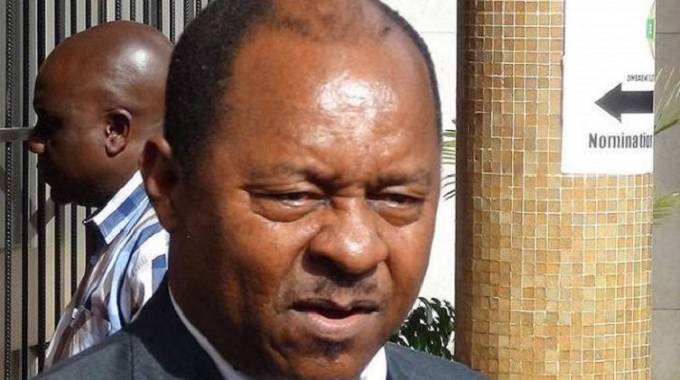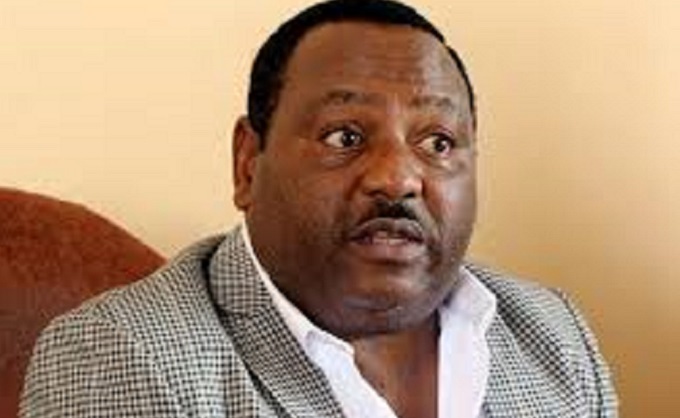EDITORIAL COMMENT: Striking doctors must return to work

That the economy is facing challenges is well-known. As a result of that, the Government’s capacity to discharge some of its responsibilities has been curtailed. The private sector is similarly affected.
Be that as it may, much work is underway to address the challenges. Among them is the drive by the Government to reengage countries with whom ours had frosty relations prior to November last year. Efforts are also afoot to attract foreign direct investment, improve the ease of doing business and towards the creation of more unity locally to enhance political and economic stability.
Thankfully, the international community is beginning to warm up to President Mnangagwa’s policies. In that direction, investment commitments have reached $15 billion over the past year. Pledges worth about $5 billion have firmed. Speaking at the ongoing 17th Zanu-PF Annual National People’s Conference at Mzingwane High School, Esigodini, Matabeleland South yesterday, President Mnangagwa reiterated that the economy is turning the corner. However, it goes without saying that it will be some time before the economy turns around given that it has been in this state for 18 years.
Events of the past two months, that saw the prices of many products rising sharply coupled with shortage of fuel and some basic commodities, have demonstrated that all Zimbabweans need to work as one to realise the economic turnaround we all want.
That economic turbulence has impacted negatively on incomes, particularly of workers and those out of jobs. A week or two ago, junior doctors went on strike, protesting against poor salaries and demanding vehicle loans, better supply of medical drugs and equipment. Service at public health institutions has been affected.
There is a risk that some patients are failing to receive the medical attention they desperately need from Government clinics and hospitals. This is unfortunate because a strike by workers in the public health sector hits the resource poor the hardest; those among us that do not have enough money to seek medical attention at private hospitals that charge high fees.
The Government is leaving no stone unturned in its engagement with the doctors and calling on them to return to work while their grievances are being attended to. We are with the Government on this one.
On Thursday, Health and Child Care Minister Dr Obadiah Moyo met the Zimbabwe Hospital Doctors’ Association, the Health Service Board, the Zimbabwe Medical Association and the Apex Council to try and break the impasse. He announced after the meeting that the Government has met some of the demands by the doctors.
It emerged too, that the striking workers have dropped their demand for salaries in foreign currency on the basis that it is not feasible under the prevailing circumstances.
“Medicines have been received and they are at NatPharm ready for distribution to all health centres around the country. We have given an instruction that NatPharm should distribute medicines to all health institutions,” Dr Moyo said.
“Transportation of our workers has been looked into, starting with fuel. We have put fuel arrangements in place at all health institutions that have fuel tanks, for example, at Parirenyatwa Group of Hospitals, Harare Central Hospital and Mpilo Central Hospital. We even went to the extent of asking for our doctors and critical healthcare workers to be exempted from queues so that they can go and provide essential services and look after the patients. Car loans have also been looked into.
Out of $10 million, we received $4 million and we are looking at the balance. Cars will be given to our health workers soon.”
We appreciate that our hard working medical doctors aren’t paid as much as they deserve given the importance of the jobs they do. We appreciate that they work under a very challenging environment. We appreciate that they have to work without some critical tools while also the public health sector lacks medicines.
However, in our view, by withdrawing their services, the doctors are aggravating the plight of patients that they should serve. Therefore, we urge them, as Dr Moyo has consistently done, to reconsider their position and return to work.
To show his personal commitment to improve the situation in the public health sector, early this month, President Mnangagwa brokered a deal that will result in India sending medical drugs worth $25 million to Zimbabwe. This is plausible. Just as plausible is the Government’s order for private pharmacies to charge in local currency and not demand payment in US$ or the South African rand. The Government has said it is uncalled for for the pharmacies to charge in foreign currency for drugs that they buy from the National Pharmaceutical Company (NatPharm) in bond notes and through bank transfer. Just on Thursday, Dr Moyo said NatPharm will open retail pharmacies and sell directly to patients, instead of relying on private pharmacies who have proved to be unreliable and too keen on profit.
These and more are commendable efforts by the Government to ensure that doctors earn better packages while improving the availability of drugs and the overall operating environment. We appeal to the striking doctors to heed the Government’s call and the plight of patients to return to work.








Comments